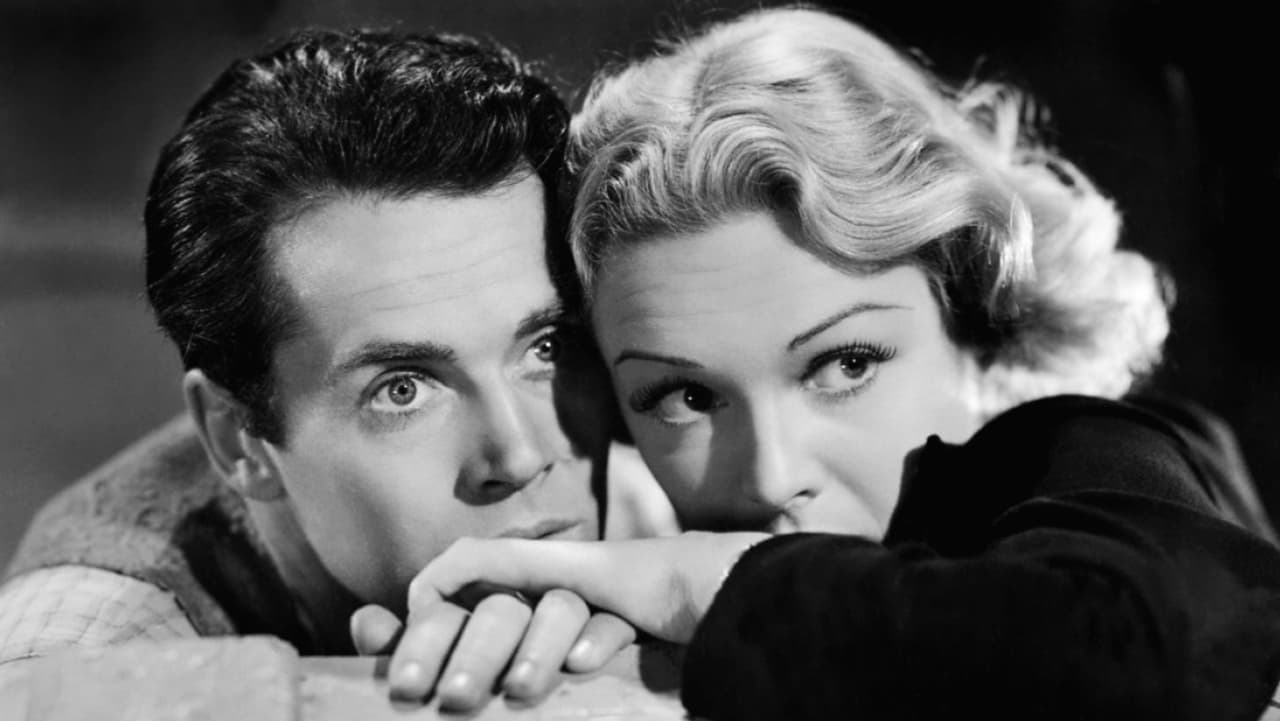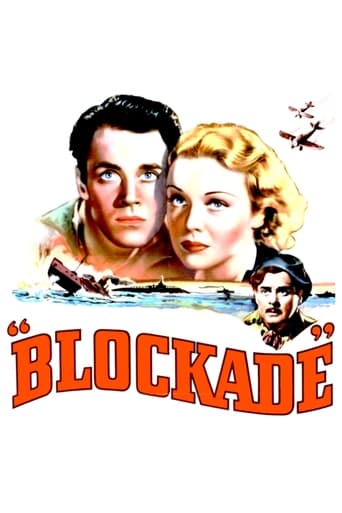




The story, direction, characters, and writing/dialogue is akin to taking a tranquilizer shot to the neck, but everything else was so well done.
View MoreIt's a good bad... and worth a popcorn matinée. While it's easy to lament what could have been...
View MoreAfter playing with our expectations, this turns out to be a very different sort of film.
View MoreIf you're interested in the topic at hand, you should just watch it and judge yourself because the reviews have gone very biased by people that didn't even watch it and just hate (or love) the creator. I liked it, it was well written, narrated, and directed and it was about a topic that interests me.
View MoreHenry Fonda was roped into this -- he had a higher box office rating than the perfect actor for it, Gilbert Roland. There aren't many roles both of these men could play, and this wasn't one of them.The story concerns the Spanish Civil War.The script was written by an avowed Communist, John Howard Lawson who wanted to "present the Communist position" in his scripts. He doesn't really get to do that in Blockade, since it's deliberately ambiguous as to the different factions, referred to as "they" and "us." The costuming also doesn't suggest anything as far as sides.The story concerns a place called Castelmare, where Marco and Luis (Fonda and Leo Carrillo) help a Russian woman, Norma (Madeleine Carroll) who has had a car accident on the way to her father's. For Marco, it's love at first sight.When war begins, Marco is the head of a group of peasant attempting to defend Castelmare. Meanwhile, Norma and her father are forced to spy for the other side. Marco winds up killing Norma's father.Castelmare cannot get any supplies, and Norma is being blackmailed to give information about the ship so that it can be sunk.Probably the most striking thing are the closeups of the suffering peasants.Casablanca it isn't. Fonda and Carroll have no chemistry. The dialogue is very stilted. Henry Fonda at the end gives an impassioned speech right into the camera. It's embarrassing.
View More¨Blockade¨ is a passable film unmistakeably set against the background of Spanish Civil War (1936-1939) directed by William Dieterle , the original title of this film was "The River is Blue" and the first director was Lewis Milestone . The title was changed to "Castles in Spain," then to "Blockade" . It deals with two simple sheperd named Marco (Henry Fonda) and Luis (Leo Carrillo) who are forced to take up arms to defend his land during the Spanish Civil War . Along the way Marco falls in love with Russian aristocrat called Norma (Madeleine Carroll) whose father named Basil (Vladimir Sokoloff) is involved in espionage . Later on , Norma is also obligated to spy for Andre Gallinet (John Halliday) . There takes place a blockade about the small location named Castelmare with posters explaining : ¨Warning . Do not discuss military matters with strangers . Beware spies ¨. The story doesn't take sides and was prohibited in some American cities in USA day since . Of course , it was also banned in Spain . The tale does not attempt to favor any cause in the present conflict. Care has been taken to prevent any costume of the production from being accurately that of either side in the Spanish civil war . The film was nominated Best Music, Original Score composed by Werner Janssen . Kurt Weill even wrote music for the original project that was never used. The movie can be seen nowadays as a War/romance/drama with some exciting images , well organized crowd and thrilling scenes . The topic of the Spanish Civil War was politically sensitive and there is some hint that the upheavals of the original project were due to the political content of the film. Much of the dialogue for the movie was supplied by the black-listed John Howard Lawson who was nominated ACademy Award for Best Writing, Original Story and novelist James M Cain (though uncredited and famous author of ¨The postman always rings twice¨) wrote interesting dialogs . The picture was professionally directed by William Dieterle but this film Blockade(1938) was too libertarian to keep him completely from the shadow of suspicion as a socialist sympathizer. This German director had great artistic style and worked with much energy in providing some of Hollywood's and the world's crown jewels of cinematic art. He immigrated to the US and was in Hollywood by 1930s with the offer of directing for Warner Bros. and began directing their series of German-language versions of released films, including: Those Who Dance (1930), The Way of All Men (1930) and subsequently directing dramas (Scarlet down , Fog over Frisco , Fashions), costumer (Kismet,Omar Khayyan) and biopics (Life of Emile Zola , Dr Ehrlich , Juarez , Madame Curie , Reuter) that were a revelation at the box-office. Dieterle some of Warner's American output (his first, The Last Flight (1931), is now regarded as a masterwork) which would ramp up to his being at the helm of six pictures a year through 1934. After that , he directed an extravaganza ,William Shakespeare's "A Midsummers Night's Dream" . Dieterle would direct Paul Muni for Warner's in three first-rate Bio movies: The Story of Louis Pasteur (1936), The Life of Emile Zola (1937), and Juarez (1939) Oscar nominations in all of them. After that , Dieterle moved on to do The hunchback of Notre Dame (1939) at RKO with Charles Laughton as Quasimodo that was one of Dieterle's best efforts . Through the 1940s, Dieterle moved around among the studios executing always vigorously wrought film work, such as, two 1940 Bios with Edward G. Robinson at Warner's. He became associated with independent producer David O. Selznick and actor Joseph Cotten first with his direction of I'll be seeing you (1944). Rating 'Blockade' : 6 , acceptable and passable . Worthwhile watching .
View MoreThe Fonda/Caroll romance is one of the weakest you can see in a thirties film.He seems to appear haphazardly at the most awkward moments.That leads us to a Corneille-like situation:Fonda has killed his love's father.Politically,the film remains vague,always referring to the enemy as "they" like in Borzage 's 'three comrades" (but that was a great film though).The war was over on the first of March 1939;thus the film ,made in 1938,warns us ,in a clumsy way,that it's only the beginning:propaganda movies can be great,but it takes a strong screenplay (best example:"the mortal storm" Frank Borzage) and not a cat and mouse play between spies ,corrupt officers and profiteers of war.In consequence ,the best scenes ,IMHO,are those which deal with the masses;the starving faces ,watching the ship sinking down are reminiscent of Eisenstein,whose influence was huge at the time.
View MoreTo paraphrase the late great Father Coughlin's jibe at the Roosevelt government's provision of "relief that failed to relieve", this inept film on the Spanish Civil War provided propaganda that failed to propagandize. That, at least to this viewer, is the only thought that lingered after suffering through almost 90 minutes of Blockade. I say this with a great deal of reluctance because I have always considered myself a great fan of both the principals of this film, Madeleine Carroll and Henry Fonda, but, alas, not even these two cinematic greats could salvage this bummer. In my quest to apportion blame I suppose the the script writer, a certain John Henry Lawson, is as good a place as any to start. The clunky lines he puts in the mouth of Fonda, a peasant hero of the so-called "republican" cause--particularly his closing monologue--are grounds for confinement in the most austere of labor camps courtesy of his obvious favorite, Comrade Joseph Stalin. I was especially struck by the tepidity of the romantic interludes with the beautiful Carroll, suggesting that a proletarian partisan like Mr. Lawson has little feeling for the more sublime side of human emotions. All of this I could excuse if Blockade offered anything approaching effective political propaganda if that was what it offered; but, at the risk of being tedious, that was precisely where it failed the most.For political propaganda that both entertains and persuades, let me suggest Casablanca. For political propaganda that offers only a few glimpses of the radiant Madeleine Carroll and nothing more, I recommend Blockade. That, unfortunately, is not enough to salvage this less than scintillating 1930s leftist pap.
View More